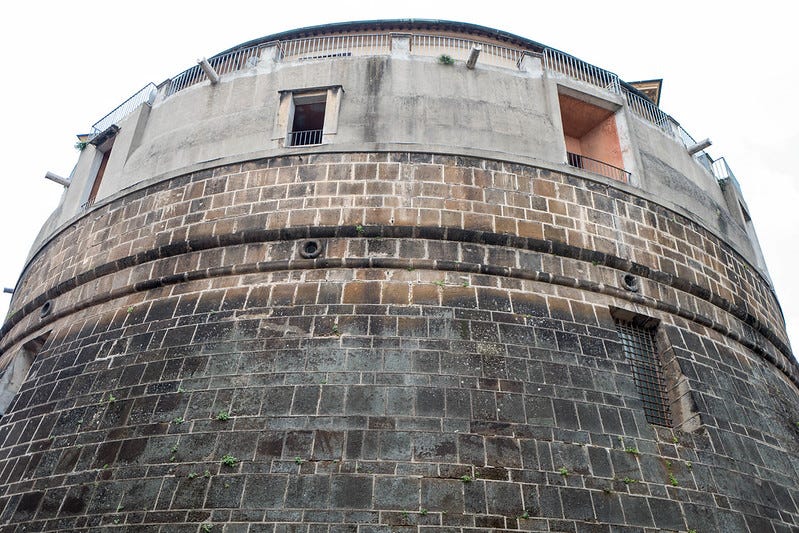The head of the Holy See’s financial watchdog has praised years of “great work” by the agency policing the risk of money laundering through Vatican institutions, and called for constant vigilance to ensure the Vatican meets international standards and expectations.
Commenting on the progress of Vatican financial reform, the head of the Financial Information and Supervisory Authority cited the importance of working with Moneyval, the European anti-money laundering watchdog, which previously flagged a failure to prioritize internal corruption and a lack of resources for prosecuting financial crimes in the Vatican.
Speaking in an interview with Vatican state media on Monday, Carmelo Barbagallo, the ASIF president said that after several years of internal reform and operational progress for the agency, a period of “consolidation” is needed within Vatican institutions to ensure the progress of financial reforms is not lost.
Barbagallo’s comments were released to accompany the publication of ASIF’s 2021 annual report, which showed the agency post an increase in the number of reports it received of suspicious financial activity within the Vatican, as well as a five-year high in the number of cases it handed over to Vatican prosecutors.
Pointing to year-on-year improvements, operational reforms, and enhanced international cooperation, Barbagallo said a “widely positive” report by Moneyval, the Council of Europe’s anti-money laundering watchdog, last year had “topped off” a period of progress.
Moneyval’s approval is of “fundamental importance” he said, and warned that “an eventual negative review would have repercussions” for the Vatican’s key financial institutions. “The great work done in previous years, and especially more recently, has prevented that from happening,” he said. “However, we cannot ‘let our guard down’ in terms of the effectiveness of prevention and enforcement action.”
While praising efforts to eliminate the risk of money laundering and terrorist financing by external actors through Vatican institutions, the watchdog’s 2021 report flagged several areas of concern, including “under-resourcing on both prosecutorial and law enforcement sides, and insufficient specialisation of financial investigators until comparatively recently.”
Moneyval also “disagreed” with the Holy See about its failure to prioritize the threat of internal financial misconduct by officials.
While the ASIF’s operational focus is combating potential money laundering by external actors through Vatican institutions, Moneyval concluded that “tax evasion is no longer considered to be the main source of money laundering.”
“The dominant typologies suggested by cases and suspicious activity reports include predicate offenses of fraud, misappropriation, giving and receiving bribes, and abuse of office” within the Vatican itself, the watchdog found.
The ASIF’s annual report, and Barbagallo’s interview, come in the middle of a sprawling financial crimes trail in Vatican City. Among the defendants are the agency’s former president and director, both of whom are charged with abuse of office.
Brülhart told the judges in the trial that the ASIF did not have supervisory powers over the Secretariat of State’s financial affairs, and explained that the agency’s primary oversight is of the IOR, a Vatican bank.
Last year, The Pillar reported that, at the same time Brülhart led the ASIF, then known as the AIF, he was also a highly paid consultant to the secretariat.
Vatican prosecutors began investigating the London property deal in 2019, after the leadership of the secretariat pressured the IOR to approve a 150 million euro loan to finance the building’s purchase.
Despite having direct responsibility for flagging suspicious financial activity related to the bank, the AIF under Brülhart took no action. The bank’s leaders had to contact Vatican prosecutors directly, who sought papal approval to begin an investigation. In the course of that investigation, Vatican law enforcement raided the ASIF offices, leading to the suspension of its then director Tomasso Di Ruzza. Brülhart resigned as president several weeks later.
In his comments Monday, Barbagallo said that under his leadership the agency had made important progress in “greater adherence to organizational principles of the Roman Curia.”
The ASIF annual report records that the agency handled 104 suspicious financial activity reports last year, the vast majority flagged by the IOR itself, but also including five from other curial departments and institutions.
The agency also passed on 21 reports to the Vatican Office of the Promoter of Justice for investigation and possible prosecution last year — only three of which were new cases, with 18 reports related to previously referred cases.




